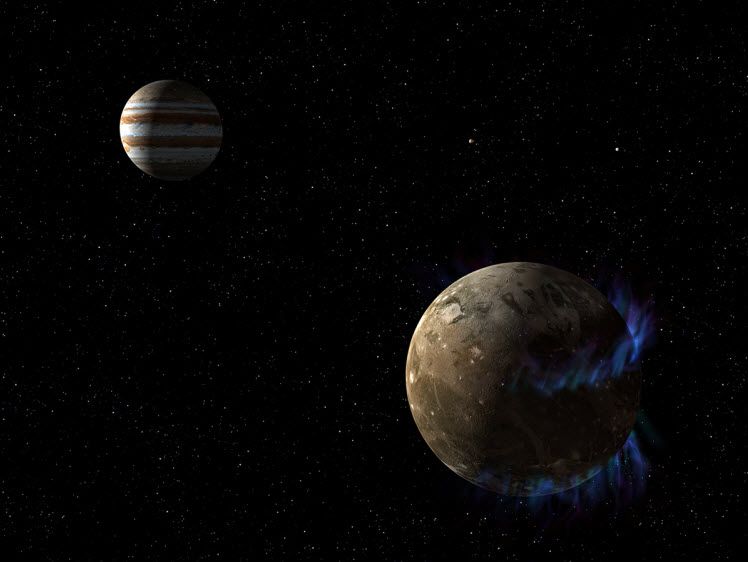Circa 2015
In this artist’s concept, the moon Ganymede (right) orbits the giant planet Jupiter. NASA’s Hubble Space Telescope observed aurorae (lights) on the moon generated by Ganymede’s magnetic fields. A saline ocean under the moon’s icy crust best explains shifting in the auroral belts measured by Hubble. (credit: NASA/ESA)
NASA’s Hubble Space Telescope has the best evidence yet for an underground saltwater ocean on Ganymede, Jupiter’s largest moon. The subterranean ocean is thought to have more water than all the water on Earth’s surface.
Identifying liquid water is crucial in the search for habitable worlds beyond Earth and for the search of life as we know it.
Read more










Comments are closed.